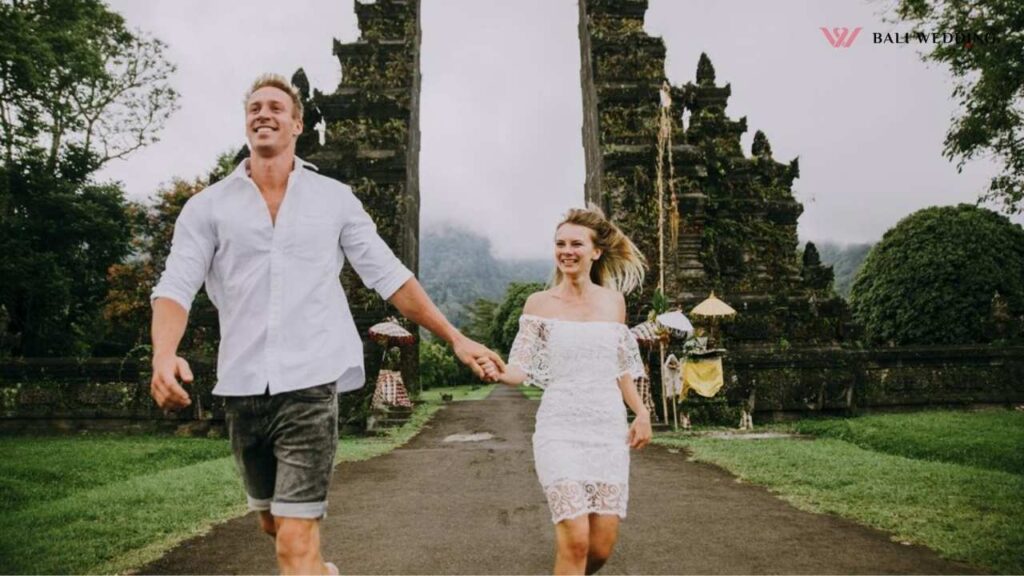November 29, 2024 • 2min read
Balinese Wedding Rituals: What You Need to Know
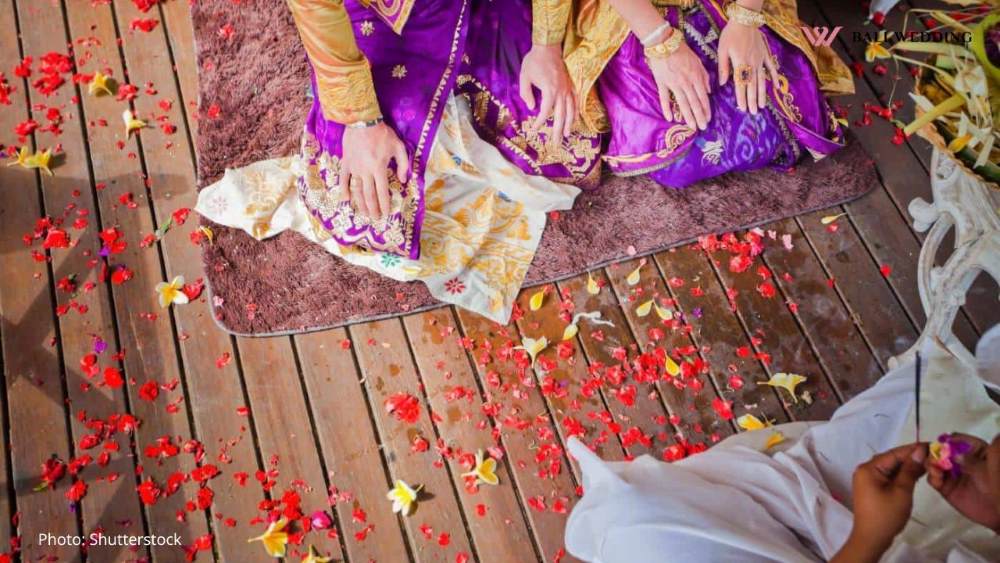
Bali, famously known as the Island of the Gods, isn’t just a tourist hotspot, it’s an idyllic backdrop for couples hoping to craft a wedding that’s truly one of a kind. Beyond its breathtaking views and upscale venues, Bali weaves in its vibrant cultural traditions, offering a deeply meaningful and spiritual touch to any celebration.
Rooted in Hindu beliefs, Balinese wedding traditions symbolize the union of two individuals and their families, all while seeking blessings from divine forces and ancestors. For couples who want their ceremony to resonate with cultural significance, these rituals offer a heartfelt way to honor love and togetherness.
A Step-by-Step Guide to Balinese Traditions
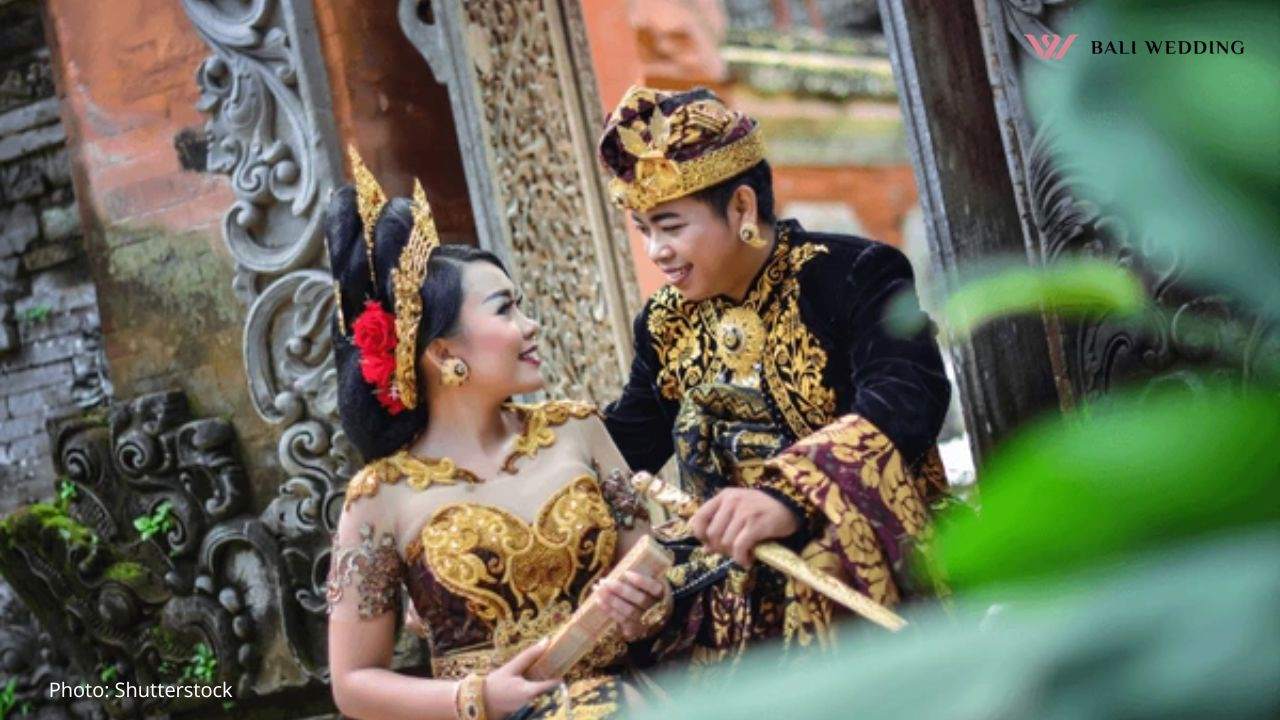
1. Ngidih: The Proposal Ceremony
Balinese wedding traditions begin with ngidih, a beautiful proposal ceremony that’s all about respect and connection. As part of this touching tradition, the groom’s family visits the bride’s home to formally seek her family’s blessing for the marriage. They bring thoughtful offerings of fruits and flowers—small but powerful gestures that represent gratitude and respect. It’s more than just a formal request, it’s a moment for both families to come together, share their hopes for the couple, and build a foundation of understanding and harmony for their future.
2. Pawiwahan: The Sacred Wedding Ceremony
At the core of Balinese wedding traditions is pawiwahan, a sacred ceremony typically held in a family temple or compound. Here, the couple kneels before a high priest (pedanda) who leads them through prayers and blessings.
Key Components of Pawiwahan:
Need Help Planning Your Dream Honeymoon?
"(Required)" indicates required fields
"(Required)" indicates required fields
- Offerings to the Gods: Carefully prepared arrangements of fruits, rice, and flowers are presented as a way to honor ancestors and deities. These offerings reflect gratitude, respect, and a deep connection to spiritual traditions.
- Blessings with Holy Water: The priest gently sprinkles holy water over the couple, a sacred gesture meant to cleanse their spirits and bless their union, making it pure and meaningful.
- Symbolic Acts: The couple takes part in touching rituals, like tying threads, exchanging rice, or other symbolic gestures. Each action represents their bond, commitment to one another, and hopes for a life filled with unity and prosperity.
3. Majaya-jaya: Strengthening the Union
After their vows, the couple takes part in majaya-jaya, a ritual designed to fortify their bond. This involves more blessings, prayers, and symbolic gestures meant to align their energies and create a solid foundation for a harmonious marriage.
4. Ngabe Tipat Bantal: The Feast of Gratitude
The final step is a joyous communal feast known as ngabe tipat bantal. Traditional dishes, including tipat bantal (rice cakes), are shared among family and friends. This celebration symbolizes gratitude, abundance, and togetherness, a heartfelt conclusion to the wedding rituals, marked by joy and unity.
How to Incorporate Balinese Traditions into Your Wedding
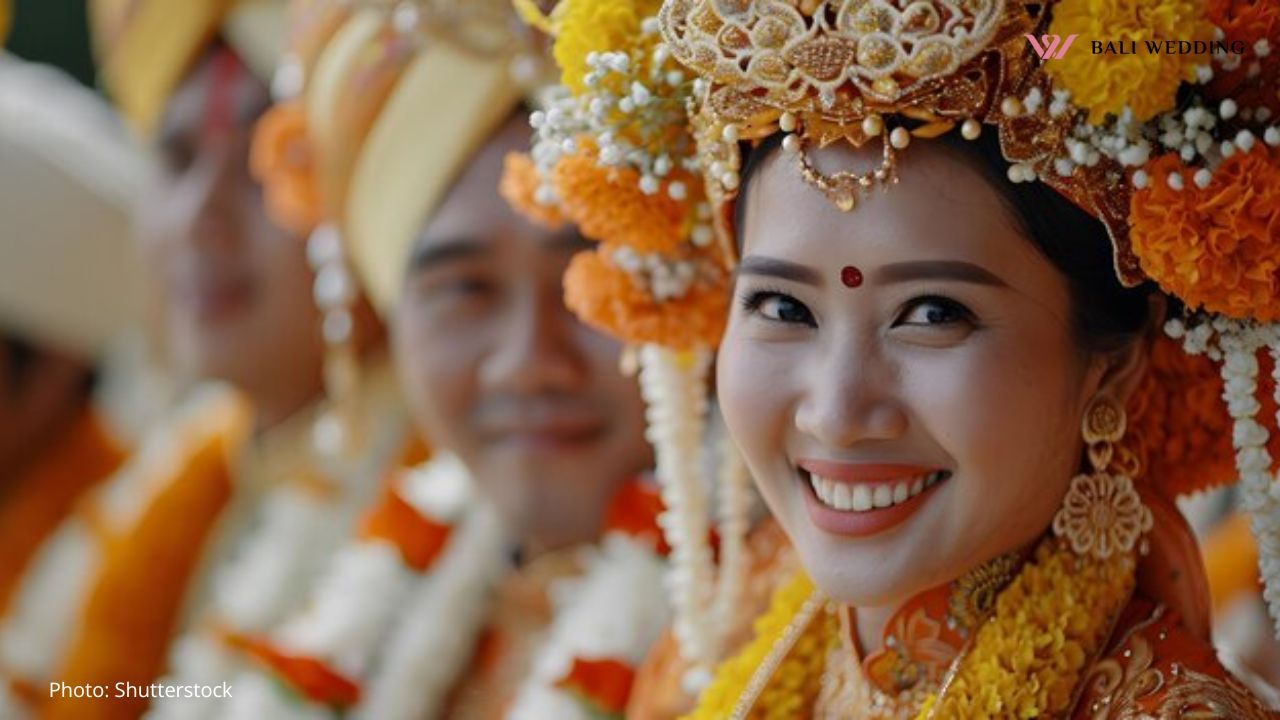
Traditional Balinese weddings are rich with cultural significance, but modern couples have found creative ways to incorporate these timeless elements into their own ceremonies, adding depth and meaning to their special day.
1. Host a Traditional Blessing Ceremony
Adding a Balinese blessing ceremony to your wedding can be a powerful way to honor tradition while creating a moment of deep spiritual connection. This meaningful ritual, often held in a temple or a breathtaking outdoor venue, includes prayers, carefully prepared offerings, and sacred blessings from a high priest. It’s a serene and beautiful way to root your celebration in Bali’s rich heritage, making your day feel truly unforgettable.
To plan for this unique touch, consider looking into resources like How Much Does a Wedding in Bali Cost? to help you navigate the details and budget for your perfect day.
2. Incorporate Balinese Decor
Transform your venue into a vibrant celebration of Balinese wedding traditions by using traditional decor like penjor (elegant bamboo poles), intricate flower offerings, and soft lantern lighting. These elements create an authentic atmosphere that blends culture with elegance. To bring your vision to life, professional decorators, such as Bali Wedding Decoration Experts, can help craft a stunning setup tailored to your style.
3. Choose a Venue That Blends Tradition and Modernity
Select a venue that harmonizes traditional rituals with modern celebrations. For example, you could begin with a heartfelt Balinese blessing ceremony at a temple and then transition to a stylish reception at a luxurious villa. This combination allows you to honor tradition while enjoying contemporary comforts. Check out Top Bali Venues for inspiration and to find a space that perfectly suits your needs.
4. Incorporate Balinese Cuisine
Treat your guests to the rich flavors of Bali by serving traditional dishes like babi guling (tender suckling pig), lawar (a savory spiced meat salad), and nasi campur (a hearty mixed rice dish). These authentic flavors not only offer a delightful culinary experience but also celebrate Bali’s vibrant food heritage, making your reception both memorable and meaningful.
Why Choose Balinese Wedding Traditions?
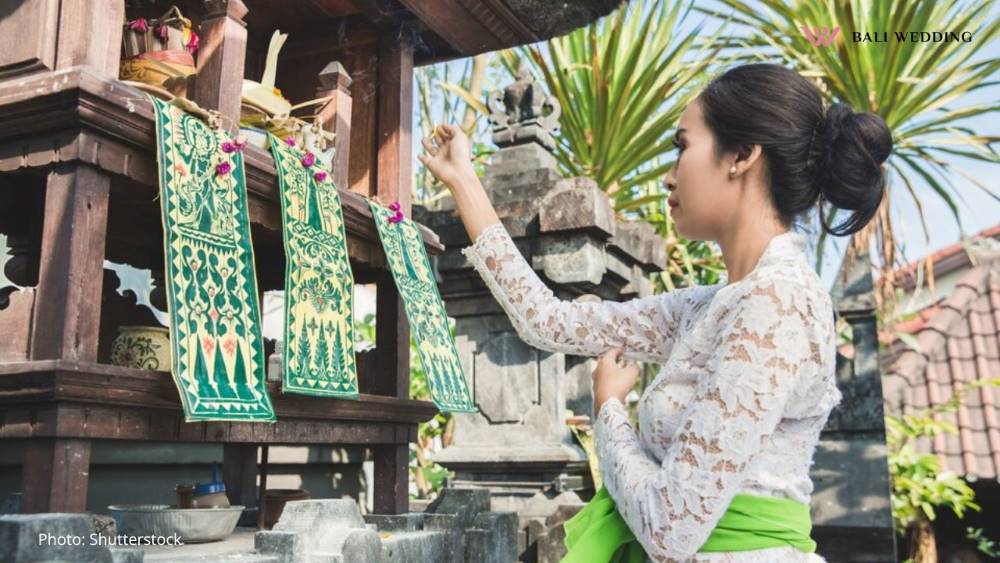
Every part of a Balinese wedding reflects deep cultural and spiritual significance. These rituals don’t just unite the couple but also bind them to their families and the divine, highlighting shared commitment and harmony.
Cultural Significance
Each ritual in a Balinese wedding holds profound meaning, symbolizing the couple’s commitment to each other, their families, and the divine.
Aesthetic Beauty
Balinese weddings are a visual masterpiece, adorned with colorful decorations, carefully prepared ceremonial offerings, and stunning traditional attire. The artistry in every detail makes these events unforgettable for all who attend.
Spiritual Connection
Grounded in centuries-old customs, these ceremonies create a profound connection between the couple, their families, and the divine. This spiritual link is thought to bring blessings of balance, happiness, and lasting prosperity to the marriage.
FAQ
1. Do I have to be Hindu to include Balinese wedding traditions?
While traditional Balinese weddings are rooted in Hindu customs, non-Hindu couples can incorporate elements like blessing ceremonies, decor, and cuisine to honor the culture.
2. Can I have a Balinese blessing ceremony if I’m already married?
Yes! Many couples choose Balinese blessing ceremonies as a way to renew their vows or celebrate their union with spiritual significance.
3. How much does a Balinese wedding cost?
The cost varies based on the type of ceremony and venue. For detailed insights, refer to How Much Does a Wedding in Bali Cost?.
4. What should I wear for a Balinese wedding?
Traditional Balinese wedding attire includes intricate garments with gold accents. For modern weddings, you can blend traditional elements with contemporary outfits.
5. Are Balinese weddings legally recognized?
Traditional Balinese weddings are spiritual ceremonies. To make your marriage legally binding, you’ll need to fulfill Indonesia’s civil marriage requirements.
Conclusion: Celebrate Love the Balinese Way
Balinese wedding rituals are so much more than just tradition, they’re a meaningful way to honor love, family, and spirituality. Whether you’re planning a classic ceremony or mixing in some modern elements, these customs add a special kind of depth and beauty to your big day.
Thinking about tying the knot in Bali?
Bali Wedding Prices is here to help! From finding stunning venues to linking you up with great photographers and decorators, we’ll handle the details so you can focus on what matters most.
Let Balinese wedding traditions and magical atmosphere make your love story unforgettable. Your dream wedding is waiting to come to life.
Related Articles
Budget Honeymoon in Bali: Complete Planning Guide 2025
Romantic Bali Honeymoon Packages for Newlyweds: Your Guide to Paradise
Have to decide how your dream wedding will look like?
Lorem ipsum dolor sit amet, consetetur sadipscing elitr.


